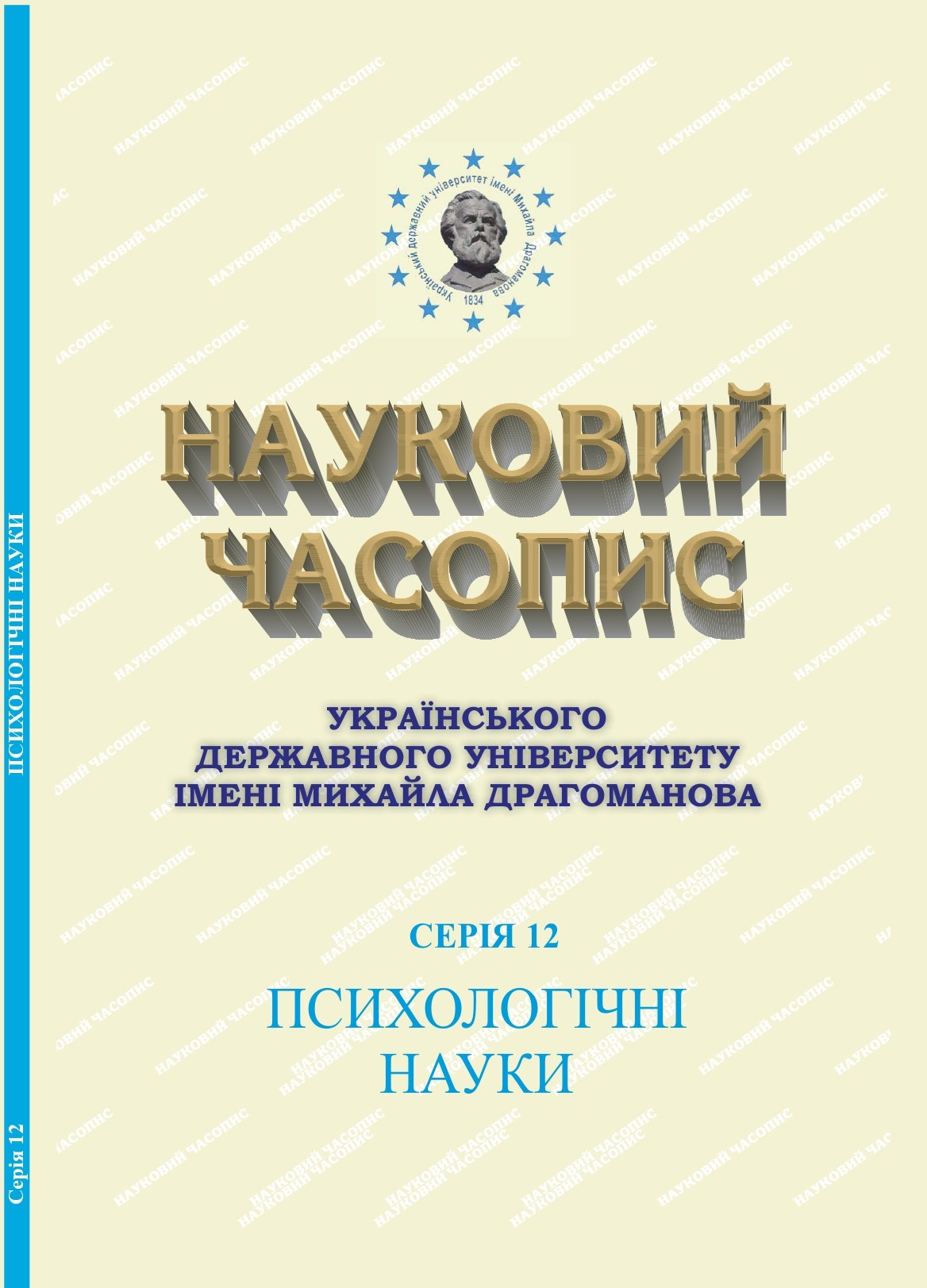EMOTIONAL INTELLIGENCE AS THE SUBJECT OF STUDY IN PSYCHOLOGICAL LITERATURE
DOI:
https://doi.org/10.31392/UDU-nc.series12.2023.22(67).08Keywords:
emotional intelligence, emotional development, empathy, anxiety, aggression, aggressiveness, adolescence, psycho-emotional states.Abstract
The article is focused on the issue of studying emotional intelligence in scientific literature. The main purpose is to theoretically analyze the scientific approaches of domestic and foreign scientists to the study of the problem of the features of the manifestation of emotional intelligence, its influence on the formation of the emotional sphere of the individual. The expediency of studying the problem mentioned is determined by the variability of society, the constant transformational processes of the social environment of the individual, which directly affect the formation of his/her emotional sphere and require the development of adaptation potential. Emotional intelligence is the ability to perceive and understand emotional expressions of a person, to manage one's own emotions based on intellectual processes. Individuals with a high level of emotional intelligence have the ability to analyze and realize both their own emotions and the emotions of other people, to manage their own emotional sphere. This contributes to greater adaptability of the individual and the effectiveness of their communication. With the help of theoretical research methods (analysis, synthesis, generalization), a detailed review of the state of development of the problem to date was carried out, the main approaches to the study of the phenomenon under study were provided. Based on a thorough analysis of modern research by Ukrainian and foreign scientists, it was stated that emotional intelligence has its own complex structure, which includes: the ability to identify and adequately express emotions, self-regulation of emotional manifestations, the ability to use emotions in thinking and activity. The development of these components helps to manage one's own emotions and experiences, realize and perceive the feelings of others, and use the information received to manage thinking and behavior. The influence of the development of emotional intelligence on the adaptive capabilities of the individual was also revealed. It has been established that the phenomenon of emotional intelligence has close relationships with such psycho-emotional states of a person as empathy, anxiety and aggression. The data obtained made it possible to determine the main directions of further research, and also contributed to the development of an indicative scheme for the experimental study of this phenomenon.
References
- Bulakh, I.S., & Kuzmenko, S.V. (2011). Psykholohichni osoblyvosty shkilnoi tryvozhnosti molodshykh shkoliariv [Psychological features of school anxiety of young schoolchildren]. Mizhnarodnyi naukovyi forum: sotsiolohiia, psykholohiia, pedahohika, menedzhment – International scientific forum: sociology, psychology, pedagogy, management, 7, 150–157 [in Ukrainian].
- Gottman, Dzh., & Dekler, (2023). Emotsiinyi intelekt u dytyny. [Raising an emotionally intelligent child]. (Kh. Shinal, Trans). Kharkiv : Vivat [in Ukrainian].
- Goulman, D. (2018). Emotsijnyj intelekt [Emotional intelligence]. Kharkiv : Vivat [in Ukrainian].
- Zarytska, V.V. (2013). Oznaky najavnosti emotsiinoho intelektu u osobystosti [Features of emotional intelligence in a personality]. Visnyk Dnipropetrovskogo universytetu – Bulletin of Dnipropetrovsk University, 19(21), 74–79 [in Ukrainian].
- Krotenko, V.I. (2001). Psykholohichni osoblyvosti empatii pidlitkiv [Psychological characteristics of empathy in adolescence]. Extended abstract of Candidate’s thesis. Kyiv [in Ukrainian].
- Ogorodnijchuk, Z.V., & Ratushna,S. (2013). Eksperymentalne vyvchennia osobystisnoi tryvozhnosti u pidlitkiv z legkoju rozumovoju vidstalistiu [Experimental study of personal anxiety of adolescents with mild mental retardation]. Naukovyj chasopys NPU imeni M. P. Dragomanova. Seriia 19 : Korektsiina pedahohika ta spetsialna psykholohiia – Scientific journal of the M.P. Drahomanov NPU. Series 19: Correctional pedagogy and special psychology, 23, 368–370. Retrieved fromhttp://nbuv.gov.ua/UJRN/Nchnpu_019_2013_23_111 [in Ukrainian].
- Prykhodko, Ju. O. & Jurchenko, V. I. (2012). Psyholohichnyj slovnyk-dovidnyk [Psychological guide dictionary]. Kyiv : Karavela [in Ukrainian].
- Rudenko, L. M. (2012). Procesualni kharakterystyky agresyvnoi povedinky [Processual characteristics of aggressive behaviour]. Naukovyj chasopys NPU imeni M. P. Dragomanova. Seriia 19 : Korektsiina pedahohika ta spetsialna psykholohiia – Scientific journal of the M.P. Drahomanov NPU. Series 19: Correctional pedagogy and special psychology, 23, 368–370. Retrieved from http://nbuv.gov.ua/UJRN/Nchnpu_019_2012_21_108 [in Ukrainian].
- Gardner, H. (2011). Frames of Mind. The Theory of Multiple Intelligences. New York : Basic Books.
- Mayer, J. & Salovey, P., & Caruso, D. (2004). Emotional Intelligence: Theory, Findings, and Implications. Psychological Inquiry, 15(3), 197–215.

